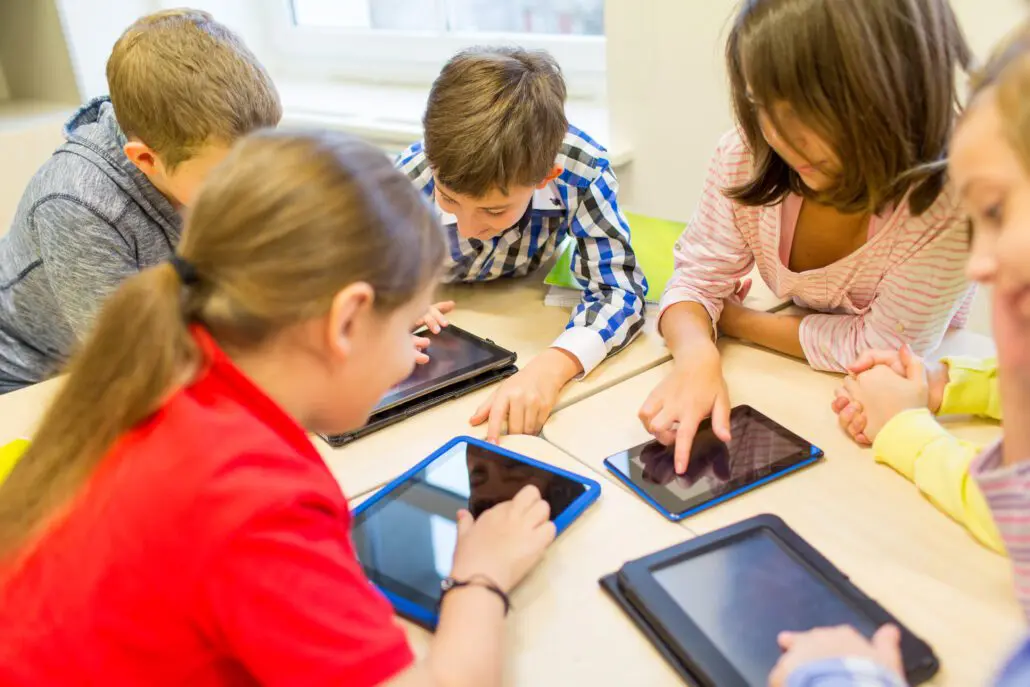Digital Citizenship for Elementary Students and Tips on Teaching Children Good Cyber Habits
Home »

Digital Citizenship for Elementary Students and Tips on Teaching Children Good Cyber Habits
Teaching children about digital citizenship is critical to a quality education today. That's why Endeavor Schools is rolling out a new Digital Citizenship program for elementary-age students.
The internet has infinite benefits, but it has to be navigated safely. In this program, students will learn how to safely drive on the information superhighway through a variety of activities that enhance their critical thinking and analytical skills as they learn to protect themselves and others in digital spaces.
“Acquiring good cyber habits in the early stages of one’s education will be highly beneficial for academic and personal success,” said Dr. Amy Brereton, Chief Academic Officer of Endeavor Schools. “These are vital tools that children need to acquire and constantly develop. This program will help them do that.”
The curriculum that Endeavor Schools will use is based on the Common Sense Digital Citizenship Curriculum. This comprehensive program covers key areas such as internet safety, privacy, respectful online communication, managing digital footprints, and media literacy.
You can read more about the Common Sense curriculum here.
What is Digital Citizenship?
Digital citizenship refers to the responsible use of technology to engage in society, communicate with others, and make informed decisions. For elementary students, this means understanding how to use the internet and devices in a safe, kind, and respectful way. It also involves developing good habits that protect personal information and promote positive online interactions.
Key Elements of Digital Citizenship for Children
- Internet Safety: Students learn the risks of sharing personal information online. It is essential for young users to use privacy settings and understand that not everything shared online is appropriate or safe.
- Respectful Communication: People sometimes act differently online, and often that isn’t a better version of themselves. We teach children to be respectful and avoid abuse by others.
- Digital Footprint Awareness: Children should know that what they post online can stay there forever. We teach them to think about their future selves and only to post things they would be proud of others seeing.
- Screen Time Management: Establish clear boundaries around your child's online time. Too much screen time can affect physical health, sleep, and relationships. For instance, excessive screen time can lead to eye strain, disrupted sleep patterns, and reduced physical activity. Balance is key.
- Critical Thinking: Not everything online is true. Teach your child to ask questions like 'Where did this information come from?' and 'Is the source reliable?' before believing or sharing it. Encouraging them to think critically about the content they encounter is a skill that will serve them well beyond the digital world.
How Parents Can Help at Home
Parents play a crucial role in reinforcing good digital citizenship at home. By leading through example, modeling responsible device use, and engaging in open conversations about your child's online activities, you can instill the values of digital responsibility in your child. Making time to sit with your child while they explore the internet, providing guidance on what to click, watch, or avoid, is another way to ensure they are using technology responsibly.
Set up parental controls to ensure a safe online environment, but also explain why these settings exist and how they help. You can also create a family media agreement, outlining rules around screen time, device use, and online behavior. Regularly revisiting these agreements as your child grows will reinforce healthy digital habits.
By being proactive and involved, parents can empower their children to become responsible digital citizens, preparing them for a future in which technology will continue to play an important role in their education and social lives.
More Resources for Parents to Teach Good Digital Habits to Children
- The Child Mind Institute has a large number of articles for parents ranging from how much screen time children should be allotted per day to ways to explainers on how cell phones can diminish concentration, and much more.
- The New York Times put together a list of apps that can be used to monitor children's online activity
- Social media needs to be treated with special care to protect children, and the American Psychological Association has some tips on how to do that.
- Are you interested in what other parents do and think about device monitoring? These Pew surveys offer some insight.
- Learn about screen addiction in this post from NeuroHealth, which includes a Ted Talk about the affliction.



